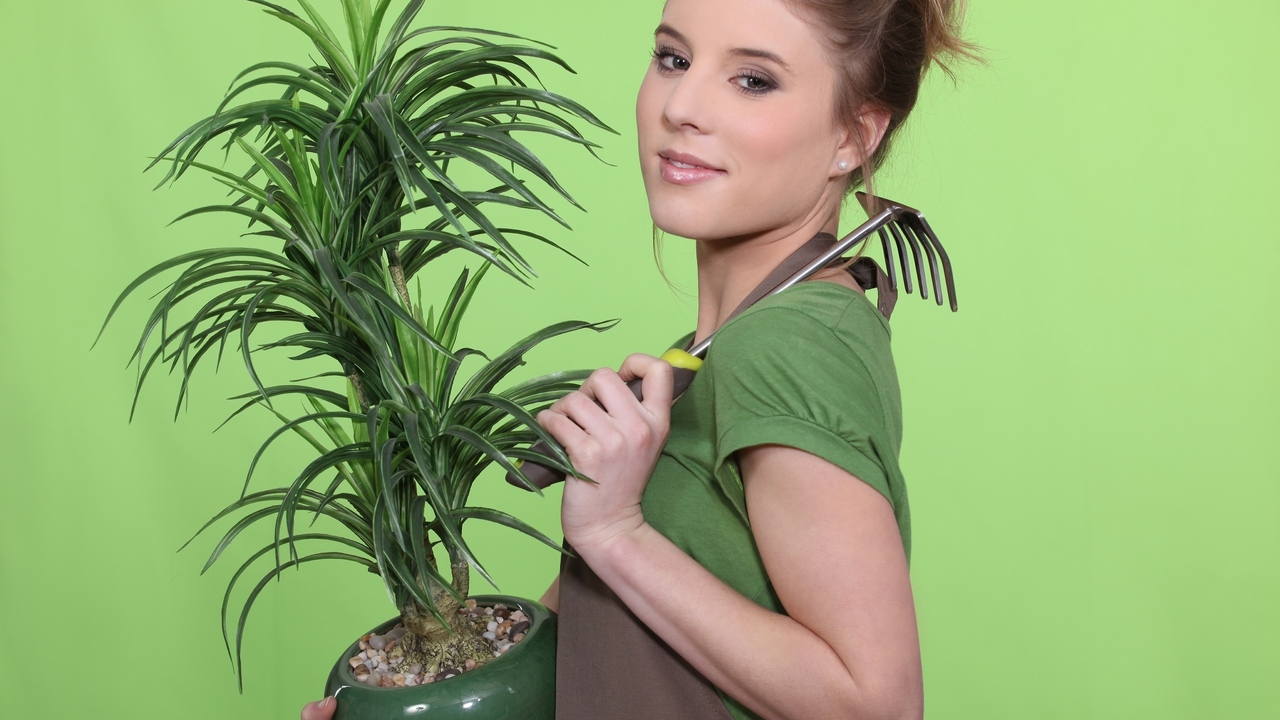 Auremar/PhotoSpin
Auremar/PhotoSpin
Placing the right house plants strategically throughout your home can make the air more fit to breathe. Plants take in what we need to get rid of, and they give out what we need to live. Some plants do a better job for us than others. Why not have a house full of them?
A benchmark piece of research was done by National Aeronautics and Space Administration researchers under the leadership of Dr. Bill Wolverton. The NASA study found that some plants can eliminate up to 87 percent of indoor air pollution in a day.
Here's a small sampling of our friends the air-purifying houseplants:
1) Azalea (Rhododendron simsii)
The azalea eliminates adhesive binders for cigarette smoke, floor coverings, fire retardants and foam insulation. It does well at 60-65 degrees so it's also good for air refinement in basements.
2) Bamboo palm (Chamaedorea sefritzii)
The bamboo palm is also called reed palm. It filters three of most common volatile organic compounds (VOCs) which are benzene, formaldehyde and trichloroethylene from the air. It also removes toxins associated with adhesive binders for floor coverings, cigarette smoke and fire retardants. The bamboo palm does well in shade.
3) Chrysanthemum (Chrysantheium morifolium)
The chrysanthemum eliminates benzene found in detergent, glue, paint and plastics. It also cleans pollutants derived from dye, gasoline, inks, oils, rubber, synthetic fibers and tobacco smoke from the air. The chrynsanthemum does well in direct sunlight.
4) Janet Craig (Dracaena deremensis)
Janet Craig removes benzene, formaldehyde, gasoline and inks from the air. It eliminates toxins associated with plastics, rubber, synthetic fibers. It grows well in low light, and needs little water.
5) Red-edged dracaena (Dracaena marginata)
Red-edged dracaena filters out formaldehyde, trichloroethylene and xylene which come from gasoline, lacquers and varnishes. It also eliminates toxins associated with benzene, detergents and pharmaceuticals.
6) English Ivy (Hedera helix)
English Ivy eliminates allergens from the air like airborne animal fecal particles, formaldehyde and mold. It also removes benzene, detergents and dye. This vine grows well in part shade and part sun. It must be kept out of reach of children and pets because it is poisonous when eaten.
7) Gerbera Daisy (Gerbera jamesonii)
The Gerbera daisy eliminates trichloroethylene from dry cleaning, and removes benzene from inks. It also removes pollutants associated with natural gas, plywood, pressed wood products.
8) Peace lily (Spathiphyllum)
The peace lily removes formaldehyde, benzene and trichloroethylene. It also eliminates toluene and xylene. This lily does well in low light. Be cautious with placement of this plant, though, because its leaves are poisonous to children and pets.
9) Spider plant (Chlorophytum comosum)
The spider plant eliminates benzene carbon monoxide, formaldehyde and xylene. It removes toxins associated with cigarette smoke, fire retardants, foam insulation and natural gas. It is safe for pets and children.
10) Warneck dracaena (Dracaena deremensis 'Warneckii')
Warneck dracaena eliminates toxins that come from oils and varnishes. It removes toxins associated with plastics, rubber, synthetic fibers and tobacco smoke. It does well with indirect sunlight.
Sources:
Plants "Clean" Air Inside Our Homes
http://www.colostate.edu/Dept/CoopExt/4DMG/Plants/clean.htm
Natural Air Cleaners
http://www.rodalesorganiclife.com/garden/natural-air-cleaners
Plants "Clean" Air Inside Our Homes
http://www.colostate.edu/Dept/CoopExt/4DMG/Plants/clean.htm
English Ivy: A Fix for Allergies?
http://www.webmd.com/allergies/news/20051107/english-ivy-fix-allergies
Visit Jody's website at http://www.ncubator.ca
Reviewed April 24, 2015
by Michele Blacksberg RN





Add a CommentComments
There are no comments yet. Be the first one and get the conversation started!